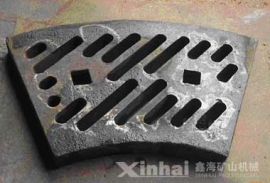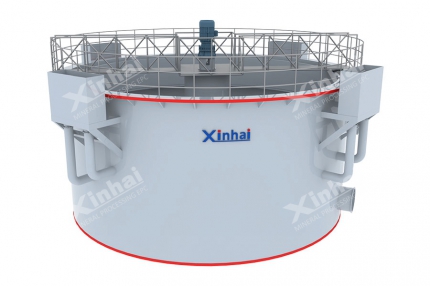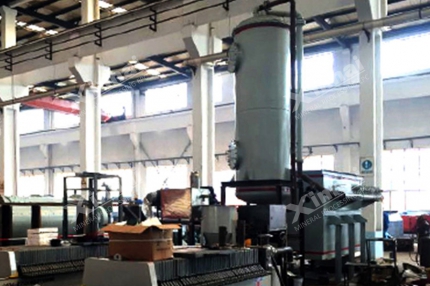The gold gravity separation refers to separate useful minerals and gangue through the difference in mineral density with the aid of the combined forces of the medium fluid and various mechanical, which is mostly used to recover the placer gold and coarse-grained gold (difficult to recover by other methods). Generally speaking, the lower limit of the gold particle size that can be recovered is 0.01mm for the gravity separation.

Use the table of contents below to navigate through the guide:
01Gravity Separation to Process Placer Gold
Jig to separate gold ore
Equipment principle:
• Mineral of different proportions will be mixed
• Stratify with small minerals in the upper layer and larger minerals in the lower layer according to specific gravity.
• Discharge the layered mineral by means of machinery and water flow.
The requirements of mineral particle size: The requirements of mineral particle size: 0.074~50mmThe requirements of mineral particle size: 0.074~50mm.
Advantage: Simple operation and large processing capacity.

Equipment principle:
• Using the transmission mechanism for driving the bed surface to do a longitudinal reciprocating movement.
• Separating ore in the reciprocating movement to discharge materials of different particle sizes from different sections of the bed surface.
The requirements of mineral particle size:
Mostly used to deal with fine-grained minerals, including three types:
coarse sand bed:0.5-2.0mm
fine sand bed: 0.074-0.5mm
slime bed: 0.037-0.074mm
Advantage: Stable and reliable process and easy to manage.

The requirements of mineral particle size:0.03~0.6mm.
Equipment principle:
• By virtue of the combined forces of water flow and mineral gravity, ore settles in different zones in accordance with specific gravity.
• The ore with a small proportion is carried away by the water flow, leaving the ore with a larger proportion.
Advantage: Simple structure, large processing capacity, and low comprehensive cost.

02Gravity Separation to Process Vein Gold
In the vein gold processing plant, gravity separation is often used as part of the combined gold process solution. Generally, in the grinding and classifying circuit, the jig, spiral chute, and shaker are used to recover the coarse-grained monomer gold in advance, which is more favorable for subsequent flotation or cyanidation operations and can get qualified gold concentrate. This method of gold beneficiation is more commonly used in small gold mines.
Gravity-cyanide combined process
Application of ore: Gold-containing quartz vein oxidized ores.
Gravity-cyanide combined process solution:
• Adopting gravity separation to process raw gold ore to capture coarse-grained gold ore.
• Cyanidation concentrates ore to extract fine gold ore.
Gravity-flotation combined process
Application of ore:
• The symbiosis of gold and sulfide is close and can only be recovered by smelting.
• Gold-bearing quartz vein ores with uneven thickness.
In a closed-circuit grinding system, the tough coarse-grained gold(not easy to grind) is easily embedded in the mill lining (or medium), which causes loss of gold ore. More important, in the process of cyanide leaching, coarse-grained gold still remains in the cyanide tailings due to the slow dissolve rate. Therefore, in the grinding process, most of the coarse-grained gold is recovered in advance by the gravity separation method.

The placer gold mine generally adopts the gravity separation method to separate gold and gangue. The vein gold mine mostly adopts the combined beneficiation processes such as flotation, gravity separation, and cyanidation. At the same time, the stage separation flowsheet is used as far as possible to recover the coarse-grained gold in time.


 marketing@ytxinhai.com
marketing@ytxinhai.com  0086 13810327080
0086 13810327080 






































































































 CHAT
CHAT MESSAGE
MESSAGE







